Philippe Cordier
Balancing Sustainability And Performance: The Role Of Small-Scale Llms In Agentic Artificial Intelligence Systems
Jan 27, 2026Abstract:As large language models become integral to agentic artificial intelligence systems, their energy demands during inference may pose significant sustainability challenges. This study investigates whether deploying smaller-scale language models can reduce energy consumption without compromising responsiveness and output quality in a multi-agent, real-world environments. We conduct a comparative analysis across language models of varying scales to quantify trade-offs between efficiency and performance. Results show that smaller open-weights models can lower energy usage while preserving task quality. Building on these findings, we propose practical guidelines for sustainable artificial intelligence design, including optimal batch size configuration and computation resource allocation. These insights offer actionable strategies for developing scalable, environmentally responsible artificial intelligence systems.
Exploring the sustainable scaling of AI dilemma: A projective study of corporations' AI environmental impacts
Jan 27, 2025Abstract:The rapid growth of artificial intelligence (AI), particularly Large Language Models (LLMs), has raised concerns regarding its global environmental impact that extends beyond greenhouse gas emissions to include consideration of hardware fabrication and end-of-life processes. The opacity from major providers hinders companies' abilities to evaluate their AI-related environmental impacts and achieve net-zero targets. In this paper, we propose a methodology to estimate the environmental impact of a company's AI portfolio, providing actionable insights without necessitating extensive AI and Life-Cycle Assessment (LCA) expertise. Results confirm that large generative AI models consume up to 4600x more energy than traditional models. Our modelling approach, which accounts for increased AI usage, hardware computing efficiency, and changes in electricity mix in line with IPCC scenarios, forecasts AI electricity use up to 2030. Under a high adoption scenario, driven by widespread Generative AI and agents adoption associated to increasingly complex models and frameworks, AI electricity use is projected to rise by a factor of 24.4. Mitigating the environmental impact of Generative AI by 2030 requires coordinated efforts across the AI value chain. Isolated measures in hardware efficiency, model efficiency, or grid improvements alone are insufficient. We advocate for standardized environmental assessment frameworks, greater transparency from the all actors of the value chain and the introduction of a "Return on Environment" metric to align AI development with net-zero goals.
Weakly Supervised Faster-RCNN+FPN to classify animals in camera trap images
Aug 30, 2022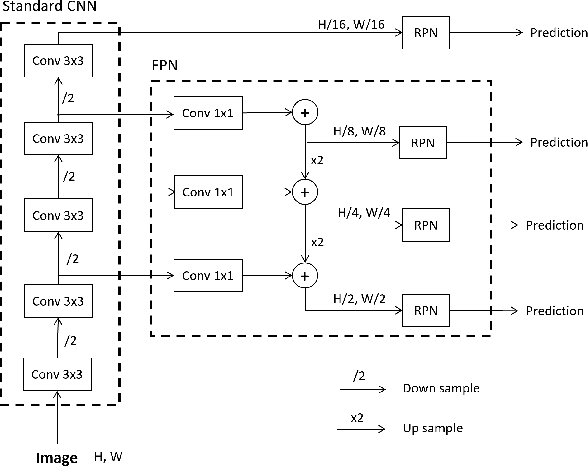
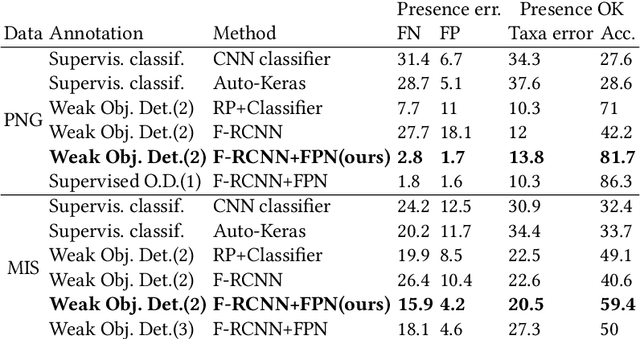
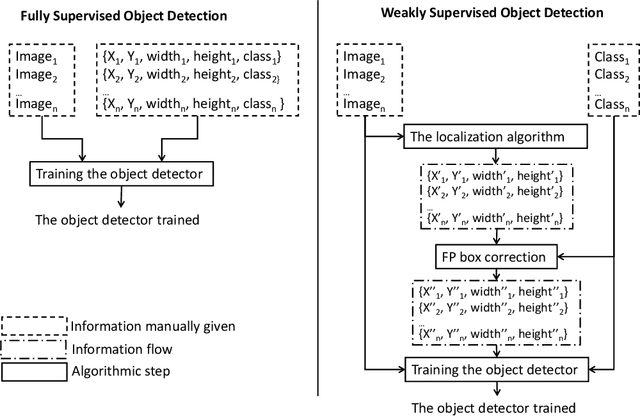
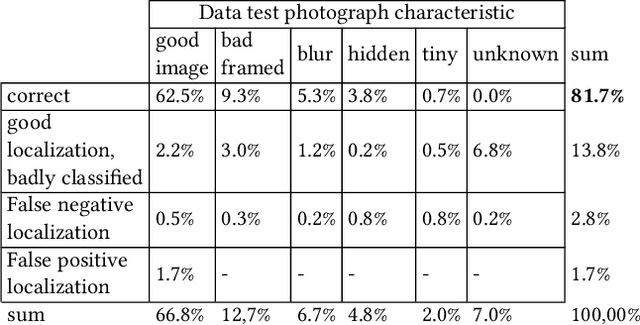
Abstract:Camera traps have revolutionized the animal research of many species that were previously nearly impossible to observe due to their habitat or behavior. They are cameras generally fixed to a tree that take a short sequence of images when triggered. Deep learning has the potential to overcome the workload to automate image classification according to taxon or empty images. However, a standard deep neural network classifier fails because animals often represent a small portion of the high-definition images. That is why we propose a workflow named Weakly Object Detection Faster-RCNN+FPN which suits this challenge. The model is weakly supervised because it requires only the animal taxon label per image but doesn't require any manual bounding box annotations. First, it automatically performs the weakly-supervised bounding box annotation using the motion from multiple frames. Then, it trains a Faster-RCNN+FPN model using this weak supervision. Experimental results have been obtained with two datasets from a Papua New Guinea and Missouri biodiversity monitoring campaign, then on an easily reproducible testbed.
pymgrid: An Open-Source Python Microgrid Simulator for Applied Artificial Intelligence Research
Nov 11, 2020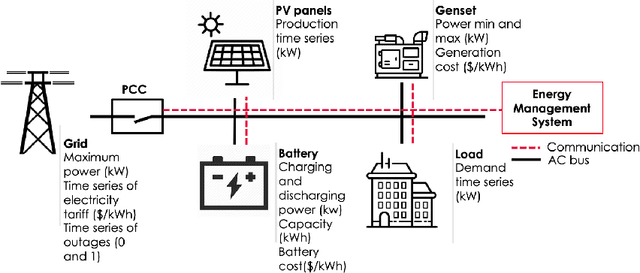
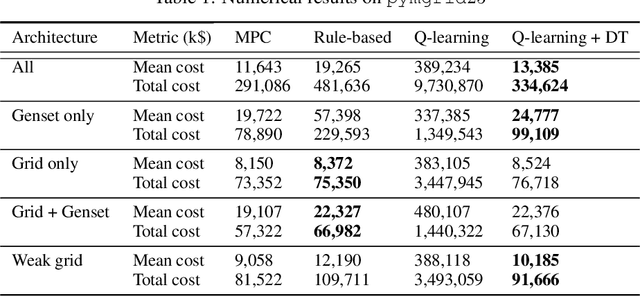
Abstract:Microgrids, self contained electrical grids that are capable of disconnecting from the main grid, hold potential in both tackling climate change mitigation via reducing CO2 emissions and adaptation by increasing infrastructure resiliency. Due to their distributed nature, microgrids are often idiosyncratic; as a result, control of these systems is nontrivial. While microgrid simulators exist, many are limited in scope and in the variety of microgrids they can simulate. We propose pymgrid, an open-source Python package to generate and simulate a large number of microgrids, and the first open-source tool that can generate more than 600 different microgrids. pymgrid abstracts most of the domain expertise, allowing users to focus on control algorithms. In particular, pymgrid is built to be a reinforcement learning (RL) platform, and includes the ability to model microgrids as Markov decision processes. pymgrid also introduces two pre-computed list of microgrids, intended to allow for research reproducibility in the microgrid setting.
 Add to Chrome
Add to Chrome Add to Firefox
Add to Firefox Add to Edge
Add to Edge